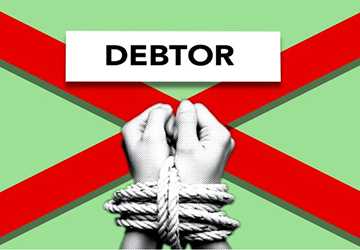Top 10 Best Practices in Personal Financial Planning
For someone who has started earning, we understand that you may have difficulty managing your finances; this is because while money does come slowly, it goes by fast, and at times, one needs help even to process where they made their expenditures, which leads to their bank account reducing in number.

However, using essential tools and making informed financial decisions when managing and planning your finances is critical. How can you do this? We have a list of ten of the best practices in personal financial planning listed for you below.
Best Personal Financial Planning Tips to Make Informed Financial Decisions
Are you someone who has had enough money flowing throughout your bank, leaving you empty-handed by the end of the month, and wants to know how you can control it? Well, these personal financial planning tips will help you in making more informed financial decisions with your money:
1. Set a Budget
While you may have already tried it and probably failed, setting a budget is the core tip for financial planning. Every individual has a different monthly income or cash flow and expenses. Hence, their budget and expenditures differ from the rest.
Gain a clear understanding of what your monthly income is, and make a list of all the expenses that you have to bear every month. Allot specific amounts to each expense and try to keep an additional amount for unforeseen ones. In between, also set aside a particular percentage or amount that you can use each month as a means of saving.
2. Organize Household Finances to Benefit from Variable Income
Families with variable incomes suffer from reactive planning because of the uncertainty around their income timing. However, using behavioural finance principles to carry out a proper automated cash flow process may help.
It will help create a discipline for saving, all while empowering spending as well. Users can create multiple bank accounts and regularly schedule transfers to inline the chaos surrounding a variable income household's spending, saving, and tax withholding.
3. Set Your Top Financial Goals
Apart from clearly understanding your expenses and expenditures, gaining a clear insight into your financial goals is also essential. These goals can be anything from purchasing a house or a new car to going on a holiday to a destination that has been on your bucket list for some time now.
Having a clear understanding of your goals will keep you motivated to set aside a budget, automate your savings, and ensure that you quickly reach the aim or goal you have set for yourself.
4. Track your Spending
While setting aside your budget is essential, tracking your spending side by side should also be a practice you need to start adapting to; this is because if you aren't watching where your money goes every month, in no time will your entire set aside budget blow off in your face.
Many must track how much they spend each month on all essential and non-essential aspects; this is not a good practice. Hence, each month, take a trip back onto all the money you've spent and try to reduce the unnecessary expenditures that you made.
5. Get Out of Debt and Stay Out of It
Credit card debt, or any debt in general, is one of the biggest obstacles that stops you from achieving your financial planning. Credit cards are very convenient for purchases but become a hassle when paying off the real money.

Hence, it is essential for any credit card user who wants to make an informed financial decision to immediately or timely pay off their credit card or other debts.
6. Automate Payments and Savings
Automating your payments and savings is a great way to manage and adapt to an outstanding finance strategy; this can be done by paying yourself first and moving some cash into your savings account on payday. Automating this step on the very day your payment comes in will help you not only do yourself a favour by adding to your savings account but also make sure that you don't even notice that a specific amount of money is missing.
7. Build an Emergency Fund
Apart from your savings, building a small emergency fund for rainy days is also an ideal approach. However, it is only sometimes necessary; most of the time, your savings would do the job nicely.

8. Look for Hidden Opportunities to Lower your Spending and Enhance your Cash Flow
Looking out for opportunities that help lower your spending is also a great practice to adopt; this can include flipping through flyers to take in all the sales at the grocery store or using gift cards or reward points to attain exceptional benefits of aspects that otherwise might increase your expenses.
9. Contribute to a Retirement Plan
Many companies offer people a proper retirement savings program to their employees. While it looks like a waste of money in your youth, this is the best decision that you can make.
A small amount of your salary would be deducted through the retirement plan and added to your retirement savings account every month or yearly. It will then be provided when you retire, ensuring you have financial smooth post-retirement days.
10. Investments Go a Long Way
Apart from savings, users can also invest their money in the right place to gain profitable returns. Investments go a long way, and users can take up many different types of investments. So, do your research well and be inclined towards investment to gain more control over your financial planning.
Conclusion
If you are trying to adapt to a better approach in terms of financial planning and making more informed decisions, then we hope this article was helpful for you. Let us know which method you think was the best and which you picked.

